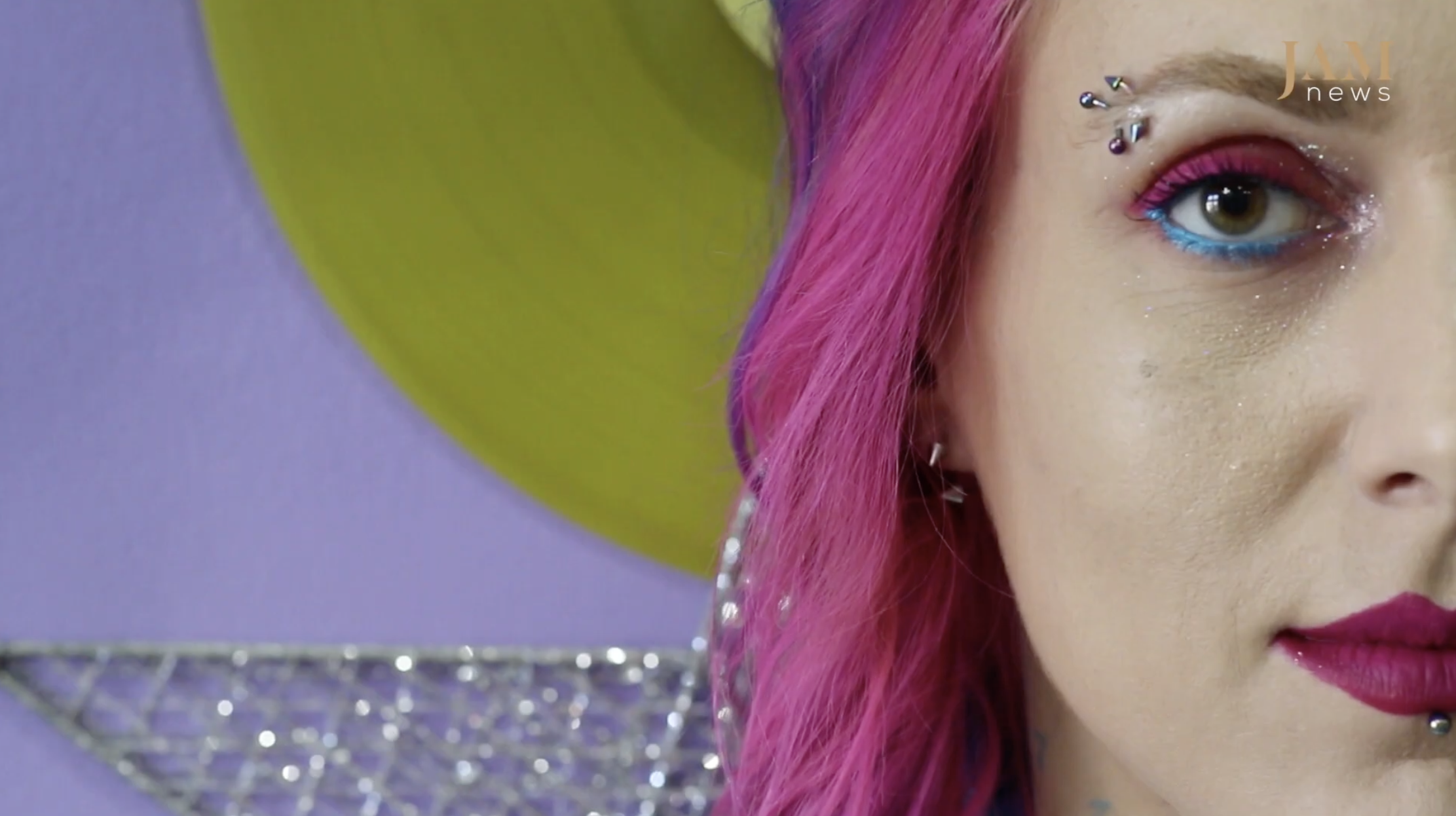Life is quite hard if you look different in Georgia
Originally published on Global Voices

A screenshot from Jam News video.
This article was first published on JAM News. An edited version is republished here under a content partnership agreement.
With her brightly colored hair, flamboyant makeup, eclectic fashion sense, piercings, and tattoos, Indigo often has to deal with standing out in Georgian society. “Some people have expressed completely ungrounded aggression towards me,” explains Indigo, a professional photographer, in an interview with JAM News. “[They tell me] I don't care about Georgia traditions.”
For Sandro “Manson” his dark, dramatic looks are a form of his artistic expression. A singer by profession, Sandro “Manson” organized the first World Goth Day event in Georgia in 2016. “Life is quite hard if you look different in Georgia,” he told JAM News.
All three protagonists explain that in the aftermath of anti LGBTQ+ protests that rocked the capital this summer much has changed in the country. Over the summer, Georgia's capital Tbilisi witnessed its worst homophobic attack to date. The March of Dignity, scheduled for July 5 as part of Pride week, was canceled amid violent attacks by anti-LGBTQ protestors. At least 50 journalists were battered and a violent mob stormed and ransacked the march organizers’ offices — Tbilisi Pride and the Shame Movement, two liberal activists groups. In the following days, another mass demonstration outside the parliament building was met with violence by far-right groups.
Post a Comment